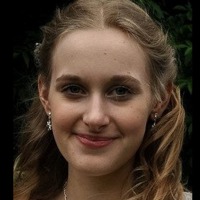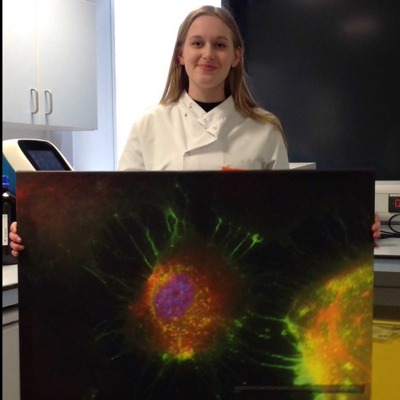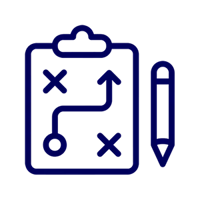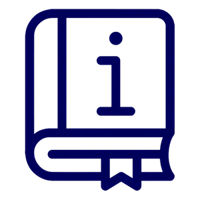
Nicola Edwards
Research Associate at Manchester Metropolitan University
The most important thing is to find your passion; the second most important thing is to work hard. You will always find the work more enjoyable if you care about something so find the subject that you are really interested in and if you don't have a name for it (I didn't) then ask or read around. Studying your passion should be fun so support yourself with other subjects and hobbies that you enjoy: they don't have to be scientific but if you are relaxed and happy, then your science will be better too.
About Nicola...
Who am I?
"My strongest personality type was the Trainer and this fits in well with what I try to achieve alongside my lab work - science communication. I enjoy volunteering as a STEM Ambassador and explaining my work to both scientists in the field and the general public. I believe it is important to be open and promote your research, as well as to educate others and show them how amazing it is! The Explorer and Manager personality types are also important to me because I need to remain curious in order to further my research and learn more, but I also need to be organised in my day to day planning. "
What do I do?
"I am a research scientist in cardiovascular research. This means that I work in a lab, planning and carrying out experiments to discover new things relating to my area of interest - how blood vessels become damaged in disease. Most of my experiments involve growing cells from human blood vessels and then testing them with different molecules to see what happens. When I achieve results, I can publish them in a scientific paper, which can then be read by other researchers around the world. I also attend conferences and present my research as posters or oral presentations and have won prizes for this. The goal for my research is to determine how blood vessels can be damaged in SLE (systemic lupus erythematosus; an autoimmune disease) so that we can design new drugs and biomarkers to prevent this from happening and keep patients healthy. I enjoy being responsible for my own work, being able to plan my day and follow the research that interests me. I have also been lucky enough to go to a number of conferences and workshops, including international ones, and I enjoy travelling to discuss my work with others. "
How did I get here?
"I was not inspired to follow a scientific career by any individual person but I continue to be inspired by the strength and passion of women in STEM, both past and present. For a long time, I wanted to be a dancer until I discovered Biomedical Science and realised it was perfect for me - I really loved learning about human disease and the independent learning suited my personality. I completed my A Levels and then studied Biomedical Science at University, which I really enjoyed. While I was at University, I gained as much work experience possible, with part time jobs in the labs to improve my skills and boost my CV. I was then accepted to do a PhD with a cardiovascular research team, which I finished in 2019. I am now working as a researcher in the cardiovascular lab and I will continue to gain experience and skills until I will be able to run my own lab."
The life I live
"In my spare time, I enjoy reading, watching films, baking and going to the theatre. I used to be a dancer and while I don't dance anymore, I still enjoy watching it! As well as English, I can speak German and a bit of Dutch and Spanish; I love travelling and learning languages! "
My typical day
"As a researcher, I am able to plan my own work day to suit my experiments. Most days I prefer to start at 8.30am and work to around 4.30pm, although other people work the hours that suit them best. I am most productive in the morning so I will head straight to the lab to check on my cells and carry out my experiments and then I often spend the afternoon analysing and writing up my results. There are often meetings and seminars held during the week to hear about the work of other groups and learn new skills. "
My qualifications
"Secondary education (GCSE/O-Levels) GCSE English (Language and Literature, A*), Maths (A*), Statistics (A*), Double Science (A*), Dance (A*), Performing Arts (A*), Spanish (A*), History (A), Religious Studies (A*). Post secondary education (College, A-levels, NVQ3 or equivalent) A Level Biology (A*), Dance (A), Theatre Studies (B), AS Level Chemistry (A), AS Level English Language (A), AS Level Spanish (A), AS Level German (A). Undergraduate degree (BSc, BA, etc.) BSc Hons in Biomedical Sciences (First Class) "
Nicola's Photos




